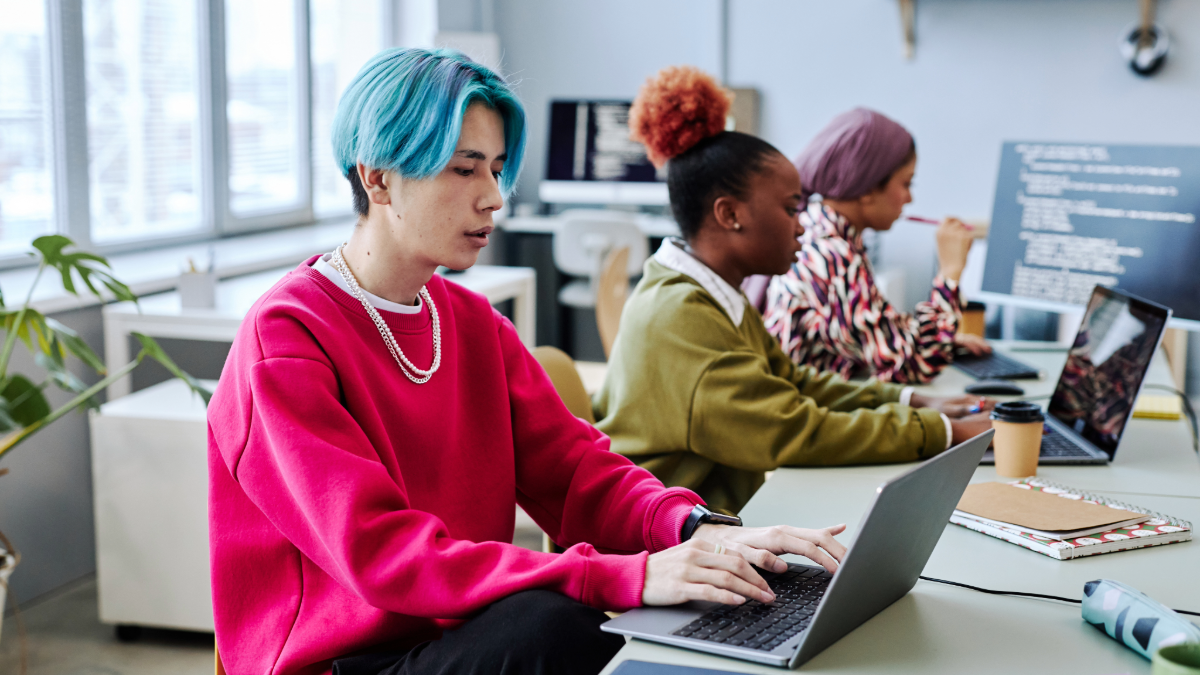Note: This is the third and last piece in a series aimed at helping leaders identify and build the human skills we need to successfully navigate the AI era.
Before we feared AI, we feared writing. Socrates warned that putting words on paper would destroy memory, weaken wisdom, and dull the human mind. Centuries later, we’re facing the same fear, just with shinier tools. Our worry: that generative AI uses patterns within our own words to repackage our knowledge, overtake our productivity and threaten our jobs.
AI experts are bullish on its promise: 56% believe that GenAI will have a positive impact in the next 20 years. The American public is more cautious. Only 11% are more excited than concerned about its impact on life and work.
AI is here to stay, but we still have a learning curve on using it without losing our way–or ourselves. Curiosity, critical thinking, empathy and collaboration are four uniquely human skills that AI can’t replace. Here are four simple things you can do to build these non-negotiable skills that will help define AI’s future and safeguard our own.
Curiosity: Go Down A Rabbit Hole
Have you ever looked up something very specific on Wikipedia only to find yourself clicking away at intriguing bits of trivia? Congratulations–you’ve gone down a Wiki rabbit hole (a real thing, with its own Wikipedia page). But you aren’t just wasting your time: rabbit holes are very productive places to build your curiosity and deepen your connective thinking. And how you do it says a lot about how and what you learn.
Research on nearly 500,000 Wikipedia users reveals three rabbit hole types: hunters, busybodies and dancers. Hunters stay focused on finding the information they need, busybodies follow loose threads to learn more, and dancers leap across disconnected themes and ideas. But no matter your preference, following the links enhances your creativity and interdisciplinary thinking, spurring novel connections between divergent ideas. And these are highly transferable talents–the more connections you perceive, the deeper your well of insight to tackle thorny problems and puzzling challenges.
Critical Thinking: Doodle Or Draw
Ever find yourself doodling to stay attentive in a long meeting? Turns out you aren’t just focusing your brain, you’re also reducing stress, enhancing your critical thinking, and sparking your creativity. All with a few scratches of your pencil.
It’s no wives’ tale. Doodlers recall 29% more information than non-doodlers. For busy leaders with a lot of balls in the air, doodling keeps you “in the moment” for critical meetings and conversations. And making art has been shown to increase the predictive powers of your imagination because it encompasses a different way of linking and communicating ideas. It increases the blood flow to your prefrontal cortex, activating your brain’s reward pathways, focusing your attention and heightening your awareness. So grab a pencil, a few colors or a coloring book and enjoy your boosted brain power.
Empathy: Read A Book, Preferably Fiction
Reading for information is tactical–you take what you need and leave the rest. But reading fiction is experiential. Stories invite you to step into the shoes of characters, explore different circumstances and wrestle with new ideas. Narrative comes naturally. As young children, we learn about community, culture and religion through stories passed on by our families. In fact, scientists believe that our ability to process knowledge and imagine the future through story is the foundation of our unique evolutionary advantage.
But reading also builds our empathic muscles and challenges our ethical and moral judgment. Sustained reading nurtures your imagination and reins in your wandering attention span. Reading fiction trains us to read the world–to be open to new ideas, examine conflicting perspectives and find meaning. Curling up with a book isn’t just for pleasure–it preserves the essence of humanity and improves the empathy we extend to each other.
Collaboration: Talk To People
Collaboration drives innovation, efficiency and productivity. It’s grounded in listening, asking questions and sharing experiences with others. But technology increasingly isolates us at work and at home. The U.S. annual Time Use Survey reveals that from 2003 to 2023, in-person socializing dropped 20%, but among unmarried men and people under 25 it dropped by 35%. Yes, we had a pandemic, but lest we give it too much credit, research also shows that people spent more time alone in 2023 than in 2021. And we can’t practice the skills of collaboration alone.
To rebuild the social muscle, we need to talk to each other. In a world that feels starkly divided along cultural and political lines, it’s all too easy to give up on connection out of a fear of conflict. AI may powerfully process data and patterns, but only humans can connect and collaborate. To retain that super power, we must practice being super communicators, willing and ready to lend a genuine ear and voice a unique point of view to friends, colleagues and even strangers. It takes time and practice, but the payoff is worth it.
Ever since Socrates’ time, technology has aided, augmented and disrupted human life. With GenAI, we are witnessing an existential change in the way we work and live. Will we watch or will we take charge?
AI frees us to be our most creative and inventive selves, but only if we take up the challenge. We can leave our future to its impenetrable black box. Or we can strengthen the skills that enabled us to invent it in the first place: curiosity, critical thinking, empathy, and collaboration. These are the skills that will keep us in the driver's seat, and safeguard an even more innovative and promising future. The choice is ours to make and the time is now.
First published in Forbes.com.








